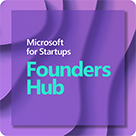I sat down recently with Orkes co-founder and CEO Jeu George. Jeu knew he was onto something exciting when he and his co-founders helped develop a workflow orchestration tool called Conductor during their time at Netflix.
After Netflix made the technology open source, Jeu saw an opportunity for this highly scalable platform to help businesses bring their innovations faster to market and increase the reliability of their offerings. So he co-created Orkes, which provides an enterprise version of Conductor as a cloud delivered service which customers are today using to orchestrate microservices based workflows, API gateways, data pipelines and more.
Jeu was excited to talk about his journey to becoming CEO, the challenges he faced, and the lessons he’s learned that he thinks other startups should know.
How did you become a CEO? How did you get where you are today?
My co-founders and I had built a product called Conductor at Netflix which was later open sourced, leading to broad adoption across many enterprises. We witnessed how much it helped developers increase their GTM velocity and realized that there was a market opportunity to bring this to even more companies and their development teams. We were in the right place at the right time, and that’s when we decided to create a company around this technology.
Conductor is an open-source framework for workflow orchestration that makes it possible to create distributed applications using the programming language of your choice. By eliminating the challenges of maintaining and propagating the execution state, developers can focus on coding the business logic of the application rather than wrestling with the intricacies of building a distributed ecosystem.
How did Netflix’s decision to make Conductor open source impact Orkes?
When we started, the idea of making the technology open source was non-existent. Even though the platform was built for a general purpose, the initial use cases were media-centric. But after a few months, once Conductor had spread through the company, the decision was made to open-source it.

That decision had two key impacts on our startup in its early days. First, we were able to validate that there was a product-market fit for an open-source solution like ours. This was a huge step, since it can often take companies two or three years to determine product-market fit. Second, being under the Netflix umbrella lent us branding and authority that really helped.
Often, when you see successful companies building on open-source, one of the reasons for that success is that they were the original founders behind that open-source product. That was certainly the case with us.
Did you ever think that you would be a startup entrepreneur?
I always had an entrepreneurial mindset, but I never really acted on it until the chance to create a company using Conductor came along. I believe that it’s not about actively seeking the perfect idea, but rather being open and receptive when one presents itself. My co-founders felt the same way, and maybe the pandemic actually worked in our favor. With no commuting, we had more time to brainstorm and eventually realized we were ready to take the leap into entrepreneurship.
What is something new you’ve learned being an entrepreneur?
My team and I have a tech and product background, so we’re all about building things. However, when it comes to selling our product, we don’t have much experience in sales and marketing, which has been a challenge. But we’ve learned so much through the process of working very closely with our customers that we can apply to our product.
“No one ever thinks about building a data center anymore when launching a new product or service, because you know companies like Microsoft are solving that problem. That’s how you know this market shifted.”
When customers have a specific use case for our product, they want to see how it works. This is where marketing comes in, because they may not know that our product can solve their problem. Once people start using it and see it solve their problem, word spreads and growth happens. It’s a combination of marketing-led and product-led growth.
Our target audience includes developers who want to create workflows and businesspeople who understand how business orchestration works. If we can convince one of these target personas to become our champion, they will help us expand.
Would you say that’s an important way to get your name out there and then build on top of that?
It’s super important. Think about what happened with the cloud market. No one ever thinks about building a data center anymore when launching a new product or service, because you know companies like Microsoft are solving that problem. That’s how you know this market shifted.
What we are building now is orchestration, which is a layer above the cloud—meaning it’s a market as big as the cloud itself. That means direct enterprise sales won’t work if you want to capture the full market, because you can’t sell to every type of company on the planet. That’s where marketing comes into play to let the world know about this new way to build and operate their core applications.
We have seen it time and again that once people start using Conductor, it spreads through the company—so it’s very important to get that foot in the door.
What would you tell other aspiring entrepreneurs?
Sometimes when you start a company, it takes two to three years to figure out where your product fits in the market. We had an early advantage working on a product that was popular and open source, and under the branding umbrella of a popular company, Netflix. We’ve been successful by taking an open-source product and building a company around it.
And like I mentioned, we have a conviction that the market for our product is as big as the cloud itself. We’re able to change peoples’ minds about investing with us by telling them this, and that now is the right time to invest. Basically you want to show them the future. This is where the future is headed, and now is a great time to join it.
Orkes is a portfolio startup of Microsoft for Startups Founders Hub. To get started with Microsoft for Startups Founders Hub, sign up here.












